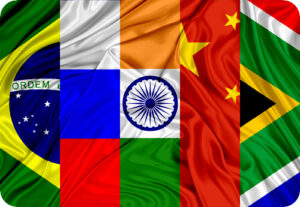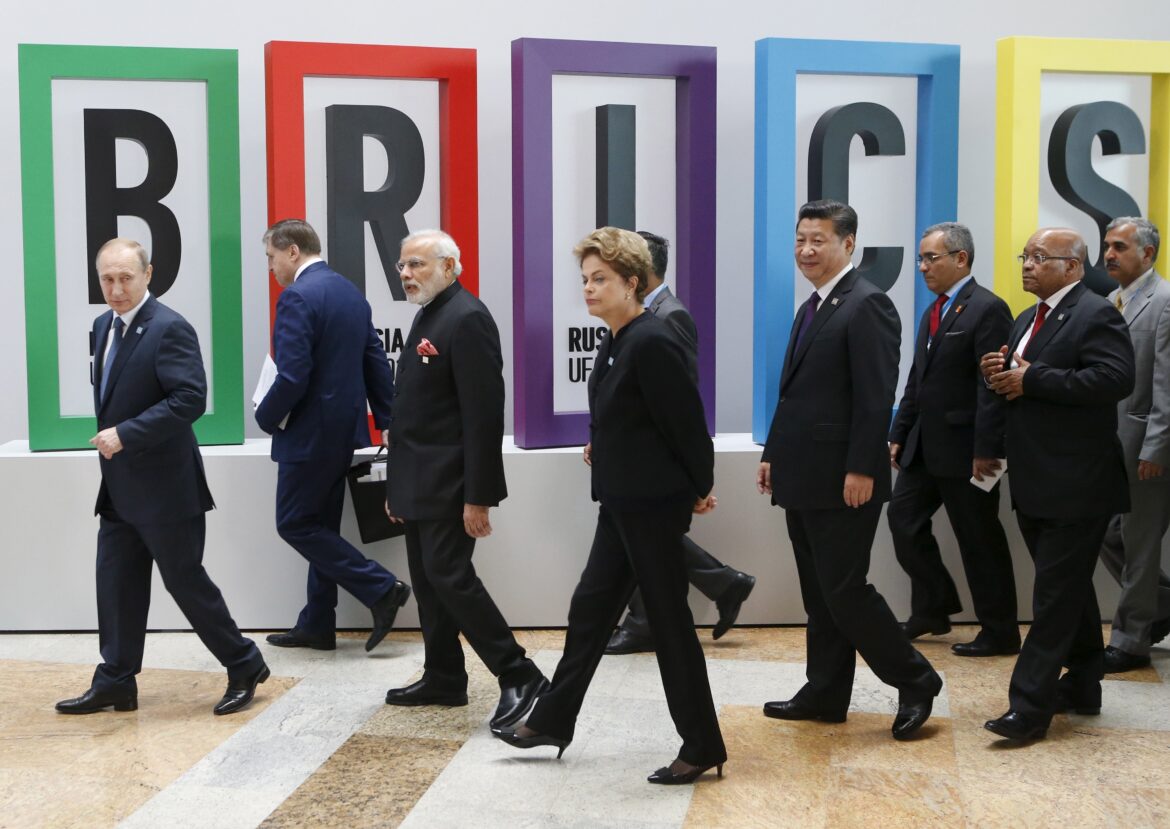 BRICS, an acronym for the emerging market economies of Brazil, Russia, India, China, and South Africa, is reportedly discussing the creation of a new global currency. The top Russian official suggested that both Russia and China should work towards obtaining a new medium for payment and emphasizing that digital payment could be the “most promising” and “most viable” option for both nations. In addition, he stressed that India and Russia should form a financial relationship with a new common currency, which could be a digital ruble or Indian rupee. The official also asserted that China could play a crucial role in developing a common currency for the trio.
BRICS, an acronym for the emerging market economies of Brazil, Russia, India, China, and South Africa, is reportedly discussing the creation of a new global currency. The top Russian official suggested that both Russia and China should work towards obtaining a new medium for payment and emphasizing that digital payment could be the “most promising” and “most viable” option for both nations. In addition, he stressed that India and Russia should form a financial relationship with a new common currency, which could be a digital ruble or Indian rupee. The official also asserted that China could play a crucial role in developing a common currency for the trio.
The move towards a new global currency is aimed at establishing monetary ties that do not defend the US dollar or euro, but rather form a new currency that benefits shared objectives. The Western pressure, especially the unprecedented levels of sanctions against the Russian economy, has prompted the country to explore alternative options. The Russian-Indian business forum held in New Delhi on March 29-30 was part of the St. Petersburg International Economic Forum’s international events.
The idea of a new global currency is gaining momentum, as China and Brazil have reached a deal to trade in their own currencies, removing the US dollar as an intermediary. This agreement will enable China and Brazil to conduct trade and financial transactions directly, exchanging the Chinese yuan directly for the Brazilian real and vice versa, without involving the greenback. Meanwhile, China is advancing rapidly with its central bank digital currency project, and crypto adoption in Brazil is growing following the legalization of it as a payment method.
The move towards a new global currency can provide a major boost to the Indian foreign forex reserves, which are at an all-time high. Moscow claimed it supplied crude oil to India nearly 22-fold ever since the West imposed sanctions. As the US dollar and euro do not consider Russia, India, or China as equivalent counterparts, the BRICS nations are exploring a new medium of payment that will benefit their shared objectives.
The BRICS nations are considering the creation of a new global currency that is not based on the US dollar or euro but benefits their shared objectives. The move towards digital payments is gaining momentum, with China and Brazil leading the way in direct currency exchanges. As the world moves towards a new monetary system, it remains to be seen how the traditional currencies will adapt to the changing global economic landscape. As more nations turn towards digital currencies, the world may soon see a shift in the balance of power in the global financial arena



